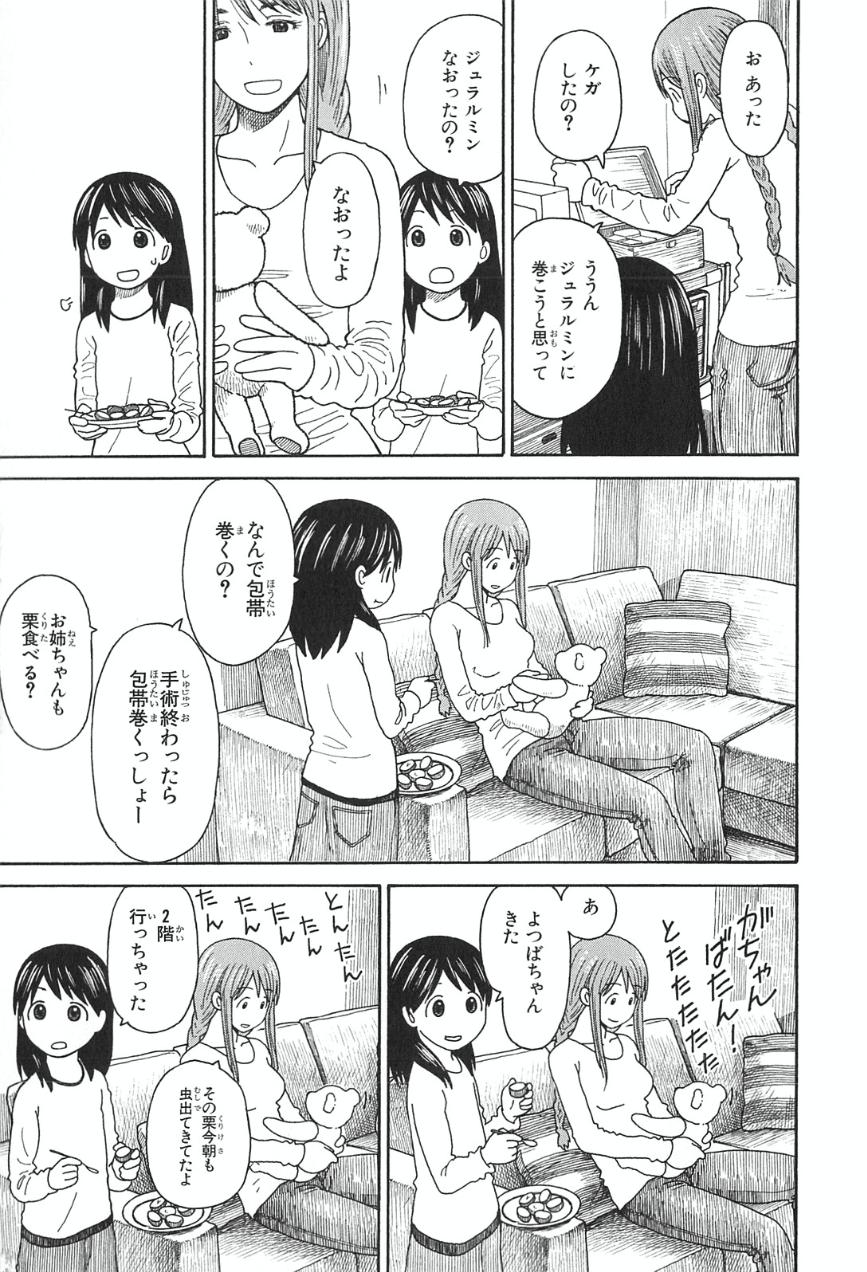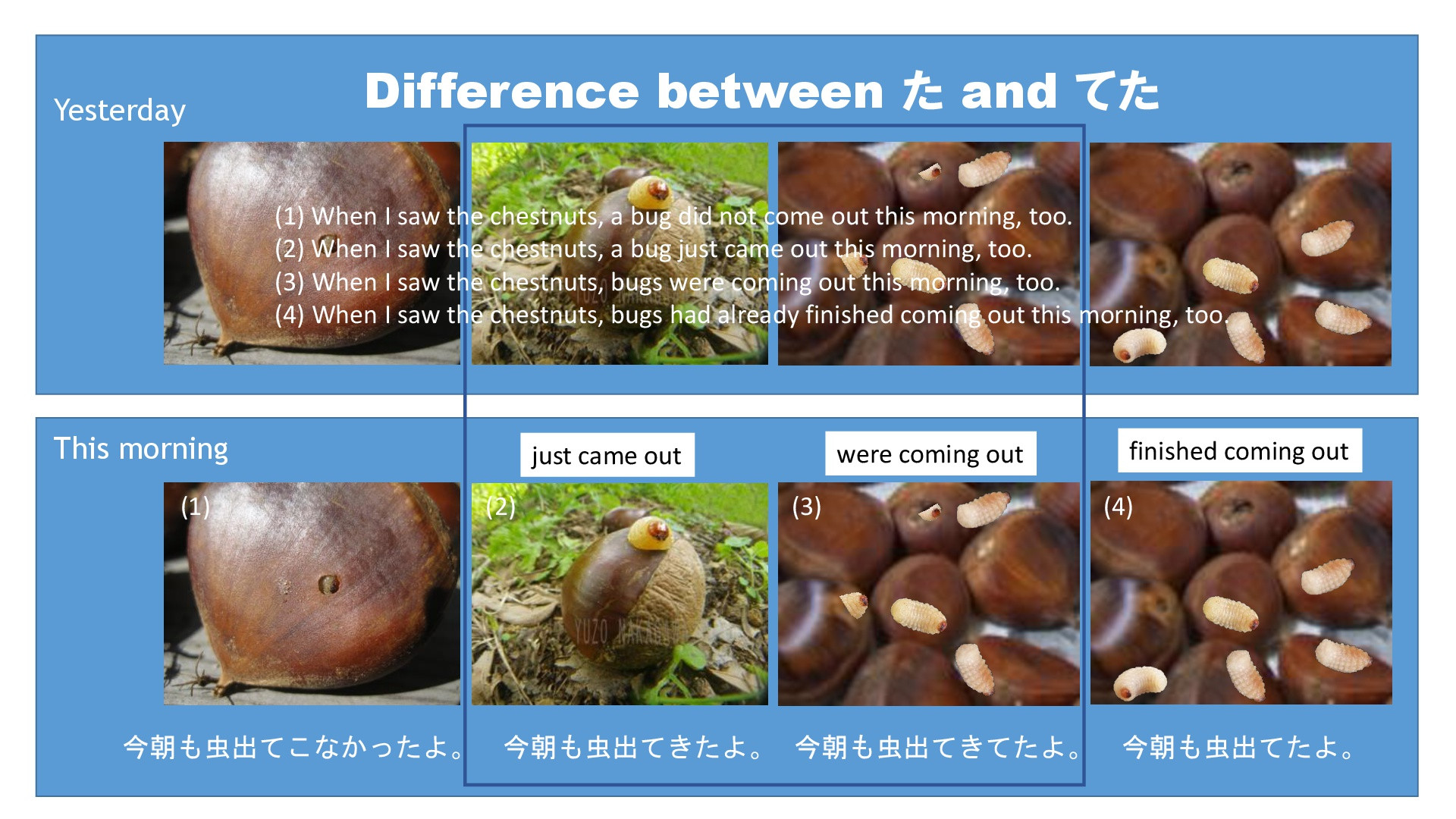Context: From Yotsuba&, they went gathering chestnuts and one of them had a bug in it so they threw it away. But here the young girl is eating from the rest and her sister is saying that there were still bugs in them that morning.
My question comes from the use of てた in this context. Why is this used instead of the past construct. I can understand it, at least form the English point of view, why it would work if it were paired with まだ or また, and think that the も, serves a similar purpose in this context, i.e. They were coming out this morning as well.
- Are there certain combinations come together, or imply one another ?
- What difference, if any, is there between the た and てた conjugations ?


